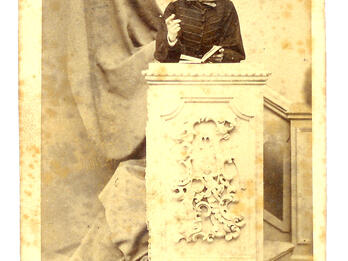The Sins of My Youth
Moses Leib Lilienblum
1873
There are two sorts of biography: the biography a famous person writes for his admirers, because the public likes to know everything about celebrities, and [the] autobiography, usually written because the events are worth recording for themselves, not because of the person to whom they have happened.
Of biographies of famous people written in…
Creator Bio
Moses Leib Lilienblum
Born in Kaidan in the Russian Empire (today, Kėdainiai, Lithuania), Moses Leib Lilienblum rebelled against his traditional upbringing and left for Odessa. In the late 1860s, he tried to find ways to harmonize halakhic Judaism with the needs of modern life. However, facing fierce rabbinic attack (and becoming a cause célèbre for the Haskalah [the Jewish Enlightenment movement]), he soon abandoned this work and repudiated the very categories of religion, embracing radical secularism. In 1873, Lilienblum published his enormously popular Hebrew autobiography, Ḥat’ot ne‘urim (Sins of Youth), read as a confession and critique, in the name of his whole generation of young men unable to live in the traditional world. Throughout that decade, he also pioneered serious social reportage and criticism in Alexander Zederbaum’s Yiddish newspaper Kol mevaser (The Herald) and, in Hebrew, recast radical utilitarian and critical ideas drawn from the Russian radical tradition in forms derived from the classical Jewish textual tradition. During the shocking wave of pogroms in 1881 and 1882, Lilienblum became a leading proponent of Jewish nationalism. He wrote powerful reconsiderations in Russian and Hebrew of the Jewish condition and the problem of antisemitism, became active in the Ḥibat Zion (Love of Zion) movement, and worked for the rest of his life in Odessa on behalf of Jewish settlement in Palestine. In this context, Lilienblum also worked with fellow Zionist Yehoshu‘a Ḥana Ravnitski in Odessa to produce Yiddish literature intended specifically to disseminate nationalist arguments and to “awaken the people”; his play Zerubavel was part of this undertaking.
Related Guide
Literature and Modernity
Jewish writing in the period spanning 1750–1880 reflects the profound changes that confronted Jews in modernity. Some writers self-consciously broke with traditional and religious models; others definitely embraced it.
You may also like
Memories of Mexico
Letter to Judah Leib Gordon
Jewish Cookery Book



